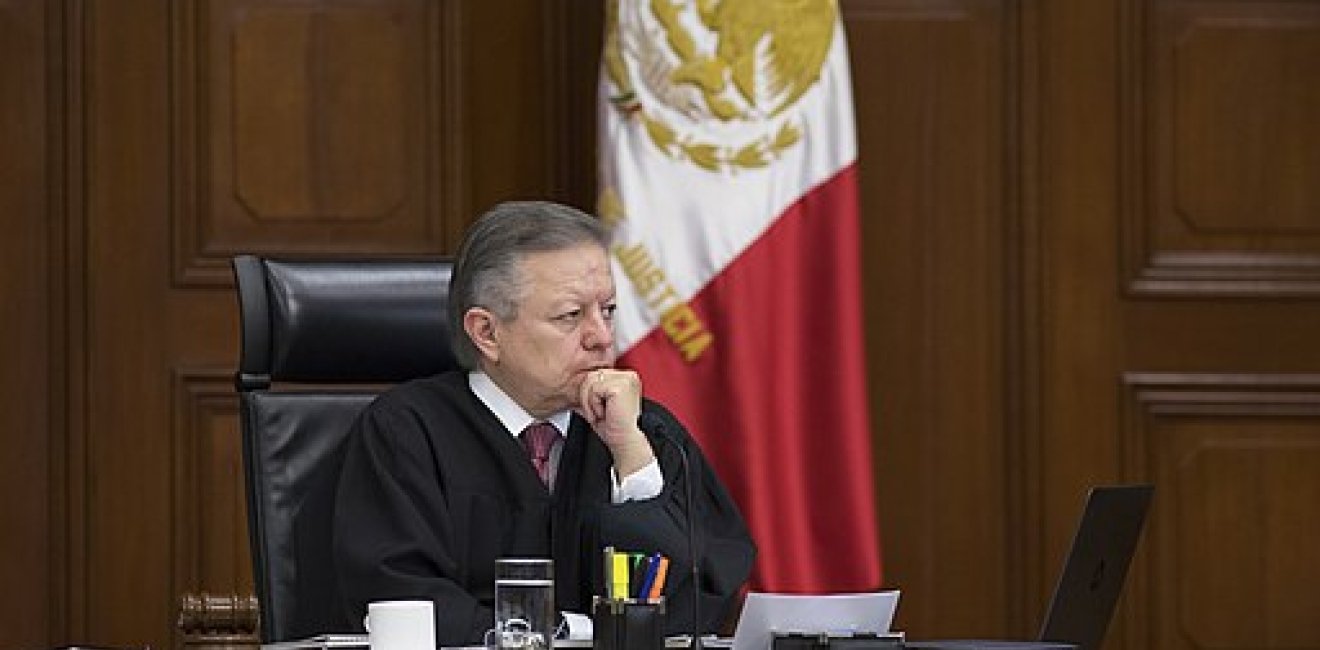The resignation of Arturo Zaldívar from the Supreme Court is yet another blow to the independence of the Supreme Court by President López Obrador and his government. Zaldívar’s resignation and his decision to join the political campaign of Claudia Sheinbaum, the presidential candidate of López Obrador’s party Morena, also confirms what many had observed regarding Zaldívar’s questionable behavior and lack of independence during his tenure as Chief Justice (2019-2022). Interestingly, this resignation also contributes to buttressing the institutional integrity and identity of the Supreme Court and of the Federal Judiciary, a strong esprit de corps that has been building up since the election of Chief Justice Norma Piña in January 2023.
Arturo Zaldívar was the first outsider to lead the Supreme Court and the Judiciary since the transition to democracy, whereas Chief Justice Piña is a paradigmatic insider. An insider is a Justice who made most of their professional career within the federal judiciary before reaching the Supreme Court. In contrast, a Justice is an outsider if they made most of their professional career outside the judiciary, in private legal practice, academia, or also legal departments of the federal public administration. The distinction between insider and outsider Justices is one expression of the corporatist organizational culture of the Mexican Federal Judiciary, one that has deep historical roots. Judicial corporatism is a double-edged sword. Practices that damage the judiciary’s legitimacy, such as undue favoritism to family relatives or personal connections, are regularly associated with corporatism. On the other hand, a strong esprit de corps and institutional identity are crucial for organizational autonomy and the development of specialized knowledge.
Whereas as an outsider Chief Justice Arturo Zaldívar promoted reforms against corporatist practices that damaged the judiciary’s legitimacy, his questionable closeness to the Executive and his relatively few ties within the institution made him progressively more isolated internally and politically more clearly captured. In contrast, insider Chief Justice Piña from the very beginning of her tenure emerged as a figure who would stand for the entire judiciary, defending the integrity of the federal judges against what they perceived as unsubstantiated attacks launched by President López Obrador. In one of her first speeches, Chief Justice Piña defended the independence of judges and of the judiciary, “not as a privilege of the judges but as a right of the citizens who come before the courts seeking justice”, and she added that “to face the injustices that generate inconformity and discontent the only solution is institutional strengthening”.
During her still brief period as Chief Justice, Norma Piña has overseen significant Supreme Court decisions. Perhaps the most notorious came in the case of the electoral reform that on May 8 and June 22 the Supreme Court nullified on procedural grounds. Governmental aggressions and attempts at a hostile takeover of the Supreme Court and the Federal Judiciary will intensify until the next election in June 2024. President López Obrador’s explicit aim is to politically subordinate the Court, through the appointment of more loyalists or a constitutional amendment to elect judges by popular vote. In this ongoing battle, the backing of the judicial corporation and the esprit de corps gives professional judges, magistrates, Justices, and indeed every single judicial official an important source of strength and will to defend judicial independence in a context of democratic stress.
*Based on the forthcoming article by Andrea Pozas-Loyo and Julio Ríos-Figueroa, “The Chief Justice in Mexico in Periods of Democratic Stress: The Double-Edged Sword of Judicial Corporatism.”
Author

Professor, ITAM (Mexico City)

Mexico Institute
The Mexico Institute seeks to improve understanding, communication, and cooperation between Mexico and the United States by promoting original research, encouraging public discussion, and proposing policy options for enhancing the bilateral relationship. A binational Advisory Board, chaired by Luis Téllez and Earl Anthony Wayne, oversees the work of the Mexico Institute. Read more

Explore More
Browse Insights & Analysis
Greenland’s New Governing Coalition Signals Consensus

The Future of France's Far-Right Party

Ukrainian Issue in Polish Elections

